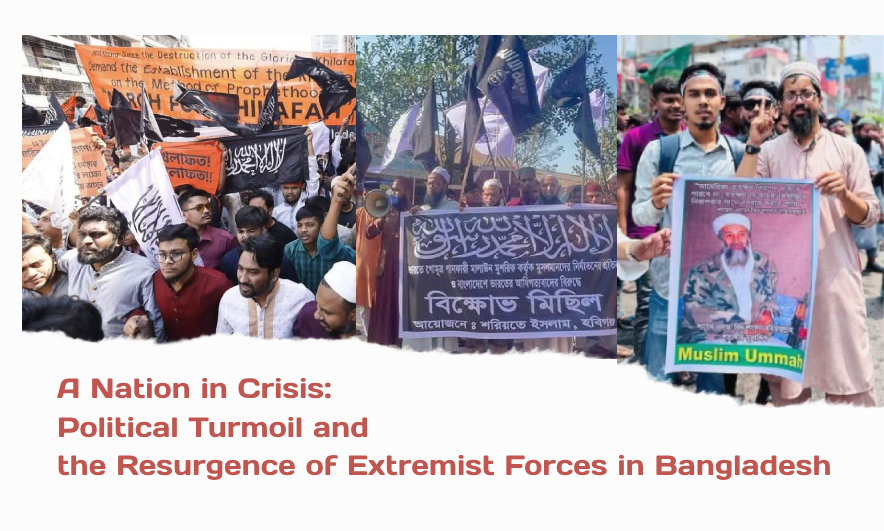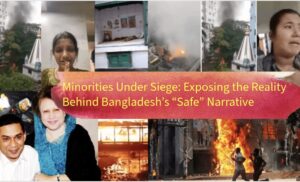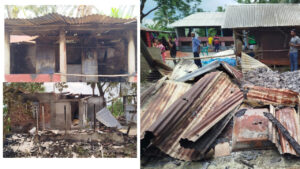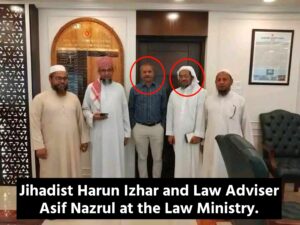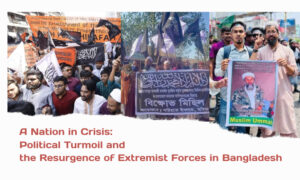Re-Emergence of Banned Islamist Groups Signals Dangerous Shift
In recent months, Islamic extremism in Bangladesh has intensified with the alarming resurgence of banned Islamist organizations. In March 2025, the radical group Hizb ut-Tahrir, outlawed since 2009, boldly staged a public demonstration called the “March for Khilafat.” The rally, held at the Baitul Mukarram National Mosque in Dhaka, attracted thousands of participants demanding the establishment of an Islamic caliphate.
The rally marked a dramatic escalation of Islamist activism and revealed a severe breakdown in law enforcement. Police responded with tear gas and sound grenades, but the protestors clashed violently with authorities. This defiant action signifies how Islamic extremism in Bangladesh has gained momentum, emboldening radical groups to act with impunity.
Release of Extremist Leaders Fuels Radical Revival
Exacerbating the situation, the interim government led by Muhammad Yunus approved the release of Jashimuddin Rahmani, the convicted leader of Ansarullah Bangla Team (ABT), in August 2024. ABT has a notorious history of orchestrating assassinations of secular activists and bloggers. Rahmani, previously convicted for inciting the murder of Rajib Haider, is considered a dangerous ideological influence.
The decision to free such a high-profile extremist figure has sparked fears that Islamic extremism in Bangladesh is being normalized and even accommodated within political maneuvering. Online jihadist platforms have already begun hailing his release as a “victory for the faith,” stoking concerns about renewed terrorist recruitment and underground operations.
Political Instability Amplifies Extremist Influence
Since the removal of Sheikh Hasina from power in August 2024, Bangladesh has been engulfed in political turmoil. The new interim administration, lacking legitimacy and control, has struggled to contain the unrest. This power vacuum has created a strategic opportunity for radical Islamist factions to resurface and reassert influence.
Key counter-terrorism units were disbanded or reassigned following the political transition, leaving a gap in national security. As Islamic extremism in Bangladesh continues to fill that void, analysts are warning of a new wave of ideological warfare that could destabilize the country further.
Minorities Face Rising Persecution
One of the most disturbing aspects of the resurgence of Islamic extremism in Bangladesh is the growing targeting of religious minorities. Hindu, Christian, and Buddhist communities have reported an increase in hate crimes, land seizures, and mob violence.
International figures have begun voicing concern. Tulsi Gabbard, a Hindu-American leader, recently condemned the Bangladeshi government’s inaction, accusing it of enabling the “rampant persecution and killing of minorities.” Her comments follow multiple reports of desecrated temples, attacks on minority villages, and widespread fear among non-Muslim citizens.
The government’s silence and failure to prosecute perpetrators has reinforced the belief that extremists now wield considerable influence over local law enforcement and administrative systems.
Regional Tensions on the Rise
The rise of Islamic extremism in Bangladesh has not gone unnoticed by neighboring countries. In March 2025, Indian Prime Minister Narendra Modi met with Muhammad Yunus to express grave concern over deteriorating conditions for Hindus and the increasing activity of jihadist groups.
Indian intelligence has intercepted multiple communications linking Bangladesh-based radicals with foreign extremist networks, heightening fears of cross-border terrorism and regional destabilization. The situation also raises the specter of refugee movements and economic disruptions spilling into neighboring regions.
The Economic Collapse and Radical Recruitment
The ongoing economic decline in Bangladesh has created a breeding ground for radicalization. With unemployment at record levels, particularly among youth, extremist groups are exploiting financial desperation to lure recruits into jihadist training camps and madrasas.
These institutions, many with extremist leanings, are reportedly spreading anti-secular and anti-democratic ideologies with minimal oversight. As Islamic extremism in Bangladesh deepens its grip, the ideological shift among youth poses a generational threat to national unity and democratic values.
Government Inaction and the Erosion of Secularism
The current interim regime has shown little initiative in addressing the spread of extremism. Instead, by releasing convicted terrorists, allowing banned groups to mobilize, and failing to protect vulnerable minorities, the government is effectively surrendering to radical elements.
Independent media, civil society activists, and human rights defenders are being silenced or intimidated, creating a chilling effect across Bangladesh’s civil space. The country’s founding principle of secularism now hangs by a thread, as Islamic extremism in Bangladesh marches forward largely unopposed.
A Call for International Action and Accountability
The global community must no longer remain passive in the face of Bangladesh’s escalating crisis. To curb Islamic extremism in Bangladesh, international diplomatic, legal, and humanitarian pressure must be intensified.
Recommendations include:
Rebanning and dismantling all resurgent Islamist networks.
Revoking the release of extremist leaders like Jashimuddin Rahmani.
Providing direct protection and legal redress for minority communities.
Enabling UN and regional agencies to support counter-extremism training.
Facilitating a return to democratic elections under neutral observation.
Time is running out. Without swift, coordinated international intervention, Bangladesh risks becoming a hub for Islamist insurgency with grave implications for South Asian stability.

